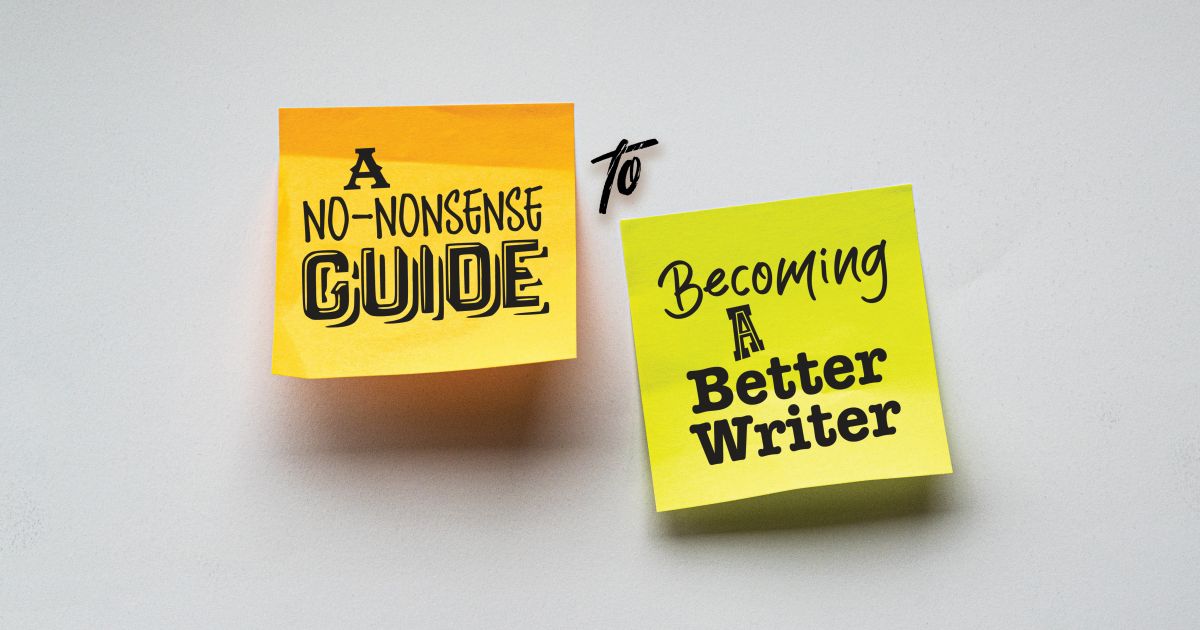Years ago, a co-worker asked me, “How can I become a better writer?”
I paused for a couple of minutes and thought about my response. Then I said, “By writing.”
I’m not a brilliant writer. I don’t have any bestsellers under my belt (yet). But my point to my co-worker was that there’s no magical way to become a better writer. It’s all about practice, practice, practice—and then practicing some more. It’s not necessarily the easiest or fastest way to improve, but it produces the best results.
I’ve been writing since I was old enough to hold a pencil, so I’ve had lots of practice. When I was a little kid, I created illustrated storybooks for my older siblings while they were away at college. I was on the staff of the high school newspaper and literary magazine. As a college journalism major, I helped pay my tuition by writing for a magazine that covered college athletic management. When I entered the workforce, I was able to differentiate myself from other job candidates because I was a strong writer.
Today, as a professional communicator, much of my time is still spent writing—everything from Slack messages and emails to presentations, proposals, and research reports. No matter how small or seemingly insignificant, I make clarity and coherence my communications goal with each piece of writing that I produce.
If becoming a better writer is your professional or personal goal, you can supplement your writing practice with these 10 proven, no-nonsense tips to help you improve.
- Don’t avoid writing. A lot of people fear writing and avoid it as much as possible. If you don’t write, you won’t improve. Don’t be afraid to get your thoughts on the page. What’s the worst that can happen?
- Get organized. For a longer piece of writing—an essay, blog post, or report—create an outline that includes your primary communications goal, main topic or message, and supporting messages. Then use your outline to build out your narrative.
- Consider your audience. Speaking of bestsellers, they exist because the author gave readers something that they want, whether it’s a great story or important information. There’s a difference between what you want to tell your audience and what they want to know. Think about your topic from your audience’s point of view and write for them, not you.
- Write a terrible first draft. This tip is also helpful for overcoming writing fears. Just get it down on the page. Allow your first draft to be the most cliché, boring, nonsensical drivel anyone would ever dare to write. Then walk away from it for a while. Getting some distance will give you a fresh perspective that will inspire rewriting and editing.
- Simple is best and less is more. As my dad used to say, “Don’t use a $5 word when a nickel will do.” Avoid flowery language, SAT words, jargon, and catchphrases—just use simple words that get your point across. Kill 99% of the adverbs (“optimally,” “highly”) and ask yourself, “Does that adjective really add anything to the meaning of this sentence?”
- Get to the point. I was told in my journalism courses, “Don’t bury the lede”—meaning, don’t neglect to include the most interesting or newsworthy information in your introductory paragraph. You must secure the reader’s interest as quickly as possible.
- Brevity is key. Keep sentences and paragraphs short—1 idea per sentence, 3-5 sentences per paragraph.
- Ask yourself, “What am I really trying to say?” Sometimes I’ll sit with an LMD colleague while they’re writing. At some point, they’ll get stuck. I’ll ask, “What are you really trying to say?” and they’ll tell me verbally in very clear terms. I’ll say, “Then write that—exactly as you just said it.” When you're struggling, stop and say out loud what you want to write. It’s a sure-fire way to get unstuck.
- Don’t fall in love with your own writing. William Faulkner said, “In writing, you must kill all your darlings.” Be willing to rewrite and edit your work mercilessly until you produce a clear, readable end product that meets your communications goals.
- Read. Reading exposes you to other styles, voices, and forms of writing. Most importantly, it exposes you to writing that's better than yours and helps you recognize good (and bad) writing. Faulkner also said,
“Read, read, read. Read everything—trash, classics, good and bad, and see how they do it. Just like a carpenter who works as an apprentice and studies the master. Read! You’ll absorb it. Then write. If it is good, you’ll find out. If it’s not, throw it out the window.”
Need help with editing, content strategy, or copywriting? Contact us.

